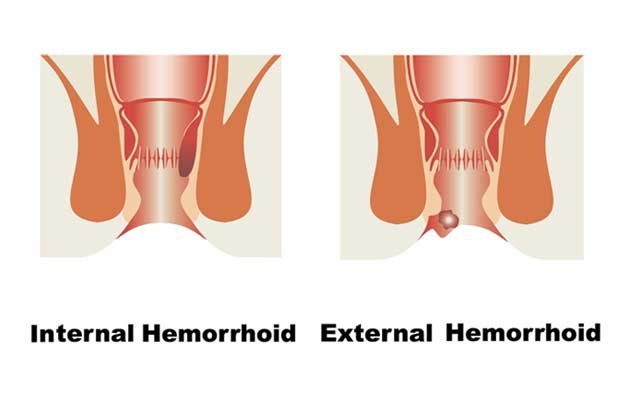What is Piles?
Piles, also known as haemorrhoids, are dilated blood vessels that can develop near the anal region. It is a common condition that affects many people and can cause discomfort and pain. In this article, we will explore everything you need to know about piles, including its types, stages, symptoms, causes, complications, treatments, and prevention.
Types of Piles
There are two types of piles: internal and external. Internal piles develop inside the anus, while external piles develop outside the anus. Both types of piles can cause discomfort and pain, but external piles can be more painful and noticeable.
Stages of Piles
Piles can range in severity from early to severe. There are four stages of piles, depending on their severity:
- First Stage: Early stage piles that are small and not noticeable
- Second Stage: Piles that prolapse or fall out of the anus during bowel movements
- Third Stage: Piles that require manual pushing back into the anus
- Fourth Stage: Severe stage piles that cannot be pushed back into the anus and cause significant pain and discomfort
Symptoms of Piles
The symptoms of piles can vary depending on the type and stage of the condition. Common symptoms include:
- Blood in poop
- Swelling/mass in the anal region
- Pain while sitting
- Itching around the anus
Causes of Piles
There are many factors that can contribute to the development of piles, including:
- Constipation or hard motions
- Poor water consumption
- Bad lifestyle
- Sedentary work
- Lack of exercise
- Familial tendency
Complications of Piles
If left untreated, piles can lead to severe complications, including:
- Excessive bleeding
- Weakness
- Tiredness
- Severe anemia
- Blood clots (thrombosed piles) causing severe pain
Treatment of Piles
Treatment for piles can vary depending on the type and stage of the condition. While early stages of piles can be managed with lifestyle changes and over-the-counter remedies, more advanced stages may require surgery to relieve symptoms and prevent complications.
Early Stages of Piles
For mild cases of piles, the following treatments may be recommended:
- Lifestyle changes such as increasing water intake, adding fiber to the diet, and avoiding prolonged periods of sitting or standing.
- Over-the-counter pain relievers such as acetaminophen or ibuprofen to alleviate discomfort.
- Topical ointments or creams containing corticosteroids or local anaesthetics to reduce pain and inflammation.
- Laxatives or stool softeners to help alleviate constipation and prevent straining during bowel movements.
Advanced Stages of Piles
For more severe cases of piles, surgery may be necessary to remove or shrink the swollen blood vessels. The following are some common surgical options:
- Traditional open surgery, where the piles are removed under general anaesthesia.
- Laser surgery, which uses a high-energy beam to shrink the piles.
- Cryosurgery, which involves freezing the piles with liquid nitrogen.
- Stapler haemorrhoidectomy, which involves removing the piles and repositioning the remaining tissue.
- Banding (rubber band ligation), which involves placing a rubber band around the base of the piles to cut off blood flow and cause them to shrink and fall off.
Prevention of Piles
Preventing piles can be achieved by making some lifestyle changes and taking proactive steps to maintain good health. Some ways to prevent piles include:
- Maintaining a healthy diet rich in fiber
- Drinking plenty of water
- Exercising regularly
- Avoiding prolonged sitting or standing
- Avoiding straining during bowel movements
- Practicing good hygiene
- Avoiding heavy lifting
In conclusion, piles is a common condition that can cause discomfort and pain. By understanding the types, stages, symptoms, causes, complications, treatments, and prevention of piles, one can take proactive steps to reduce the risk of developing the condition and live a healthier and happier life.
In order to figure out what exactly you are suffering from, you should see a doctor at your earliest convenience.
General and Laparoscopic Surgeon, LASER Proctologist
FAQs
Are piles only a problem for older adults?
No, piles can develop in people of all ages. However, it is more common in older adults, especially those over the age of 50.
Can piles be cured completely?
The severity and persistence of piles can vary from person to person. While many cases of piles can be managed with proper treatment and lifestyle changes, complete cure may not be possible for everyone.
Can piles cause permanent damage?
if left untreated, piles can lead to complications such as excessive bleeding and blood clots, which can cause permanent damage to the affected area. Early treatment is important to minimize the risk of long-term effects.
Can piles be prevented during pregnancy?
Piles are a common problem during pregnancy due to the increased pressure on the rectal veins. To prevent piles during pregnancy, it is important to maintain a healthy diet, stay hydrated, and avoid constipation.
Are there any home remedies for piles?
There are many home remedies that can help to manage the symptoms of piles, including soaking in warm baths, applying a cold compress to the affected area, and taking over-the-counter pain relievers. However, it is important to consult a doctor if you suspect you have piles, as self-treating can sometimes make the condition worse.
Can piles be cured?
Yes, piles can be cured with proper treatment, which may include lifestyle changes, medication, or surgery depending on the type and severity of the condition. Early treatment can help prevent complications and improve outcomes. It’s important to consult with a doctor if you suspect you have piles to determine the best course of treatment for your specific condition.

